I breathed the air of deliverance through books, and through books I leapt over the walls of confinement.
BILL AYERSHis [Martin Luther King] last book, Where Do We Go From Here: Chaos or Community, is a direct reference to angles, barbarism or socialism.
More Bill Ayers Quotes
-





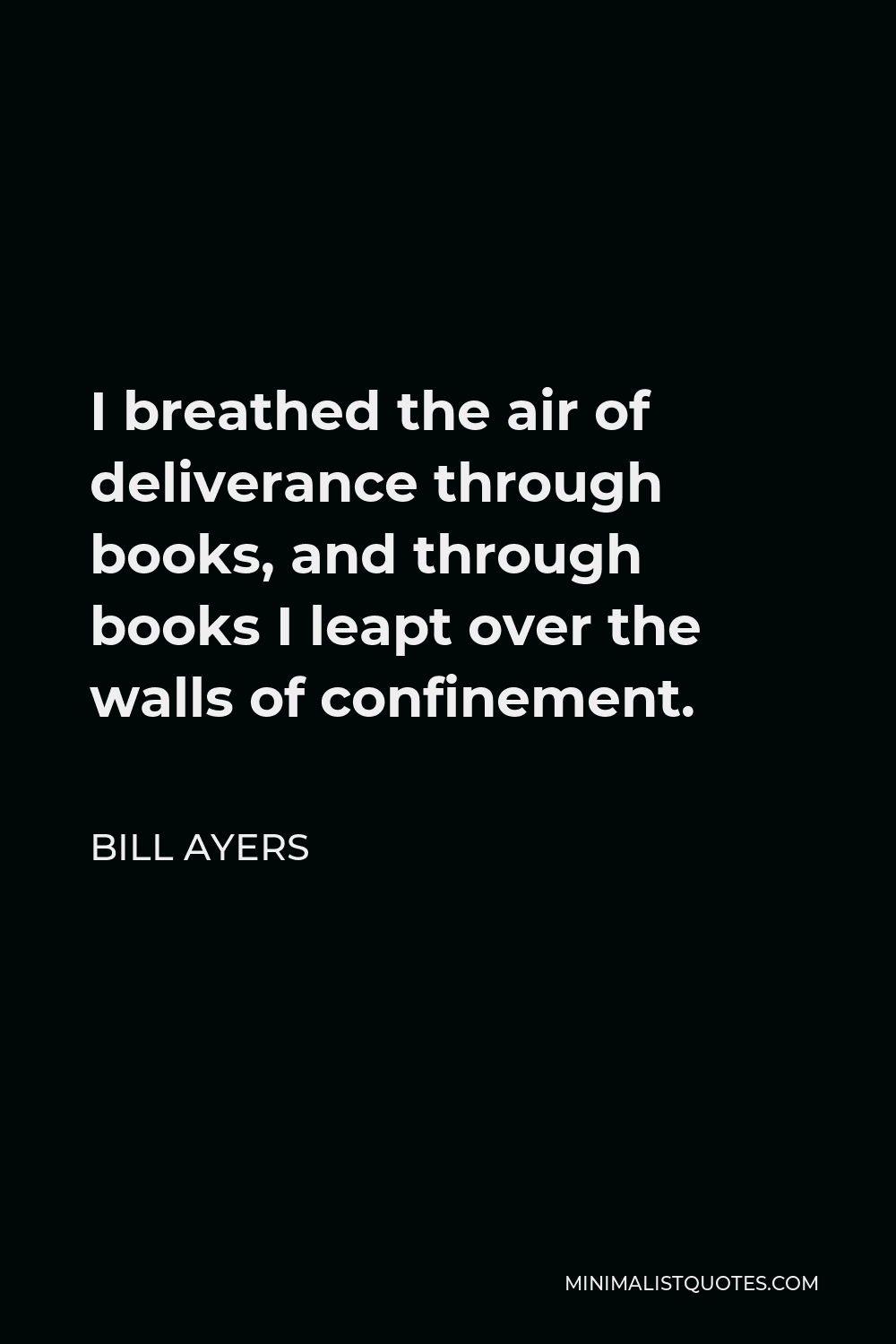
-





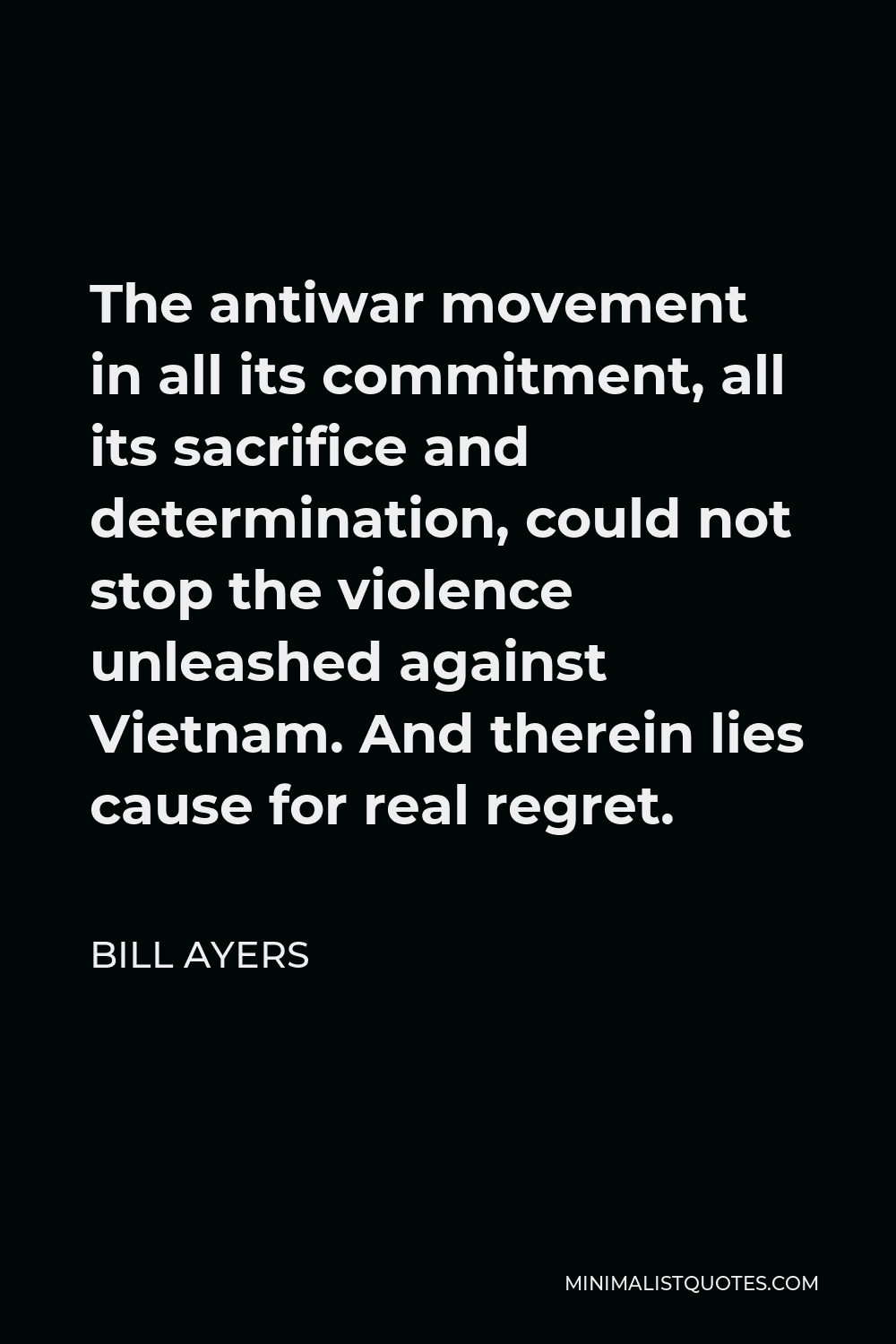
The antiwar movement in all its commitment, all its sacrifice and determination, could not stop the violence unleashed against Vietnam. And therein lies cause for real regret.
BILL AYERS -





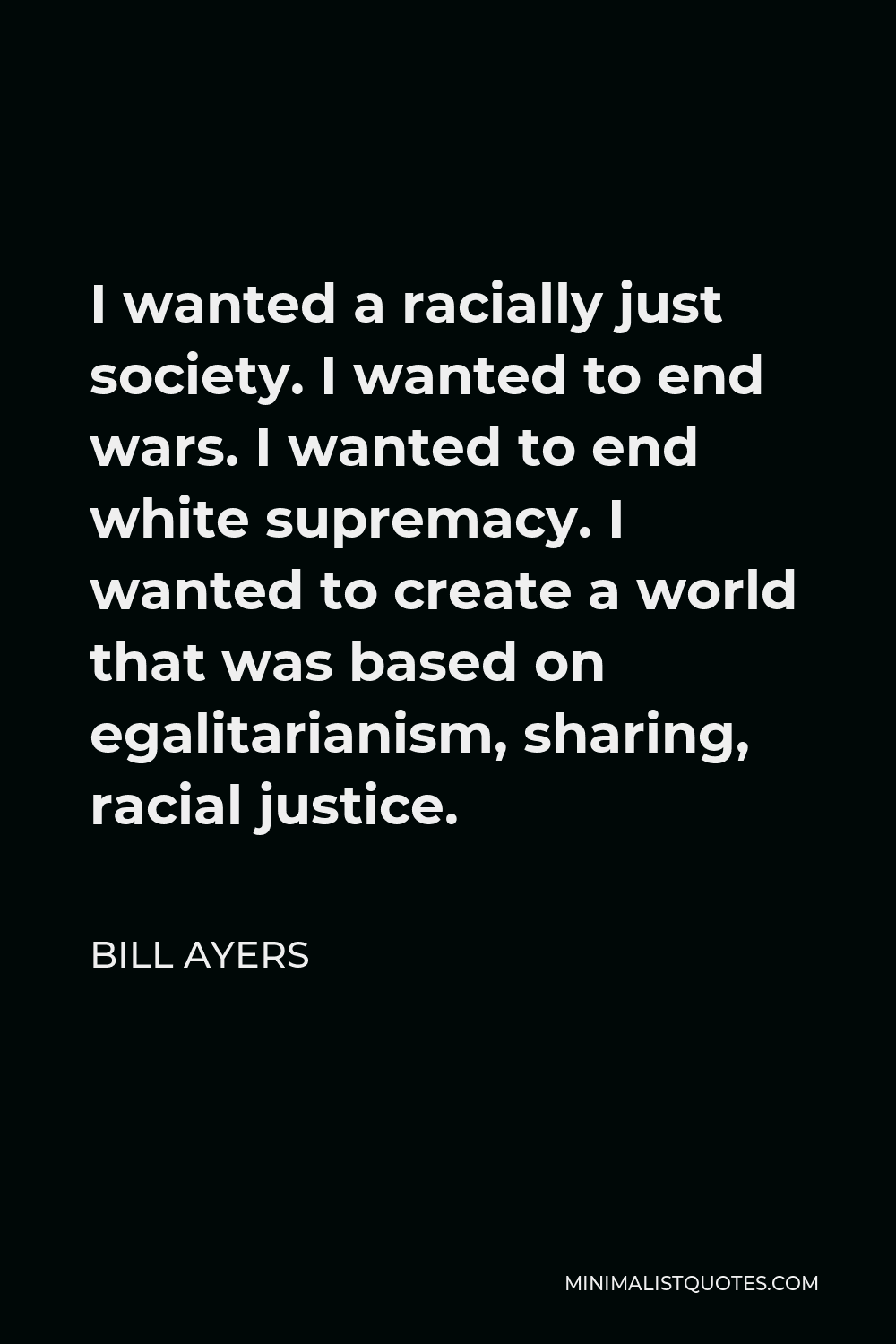
I wanted a racially just society. I wanted to end wars. I wanted to end white supremacy. I wanted to create a world that was based on egalitarianism, sharing, racial justice.
BILL AYERS -






So I had the great advantage of being able to play up to the older kids and play down to the younger kids and I think that’s part of what propelled me to become a teacher at some point in my life. But it was a comfortable childhood. It was a privileged childhood.
BILL AYERS -





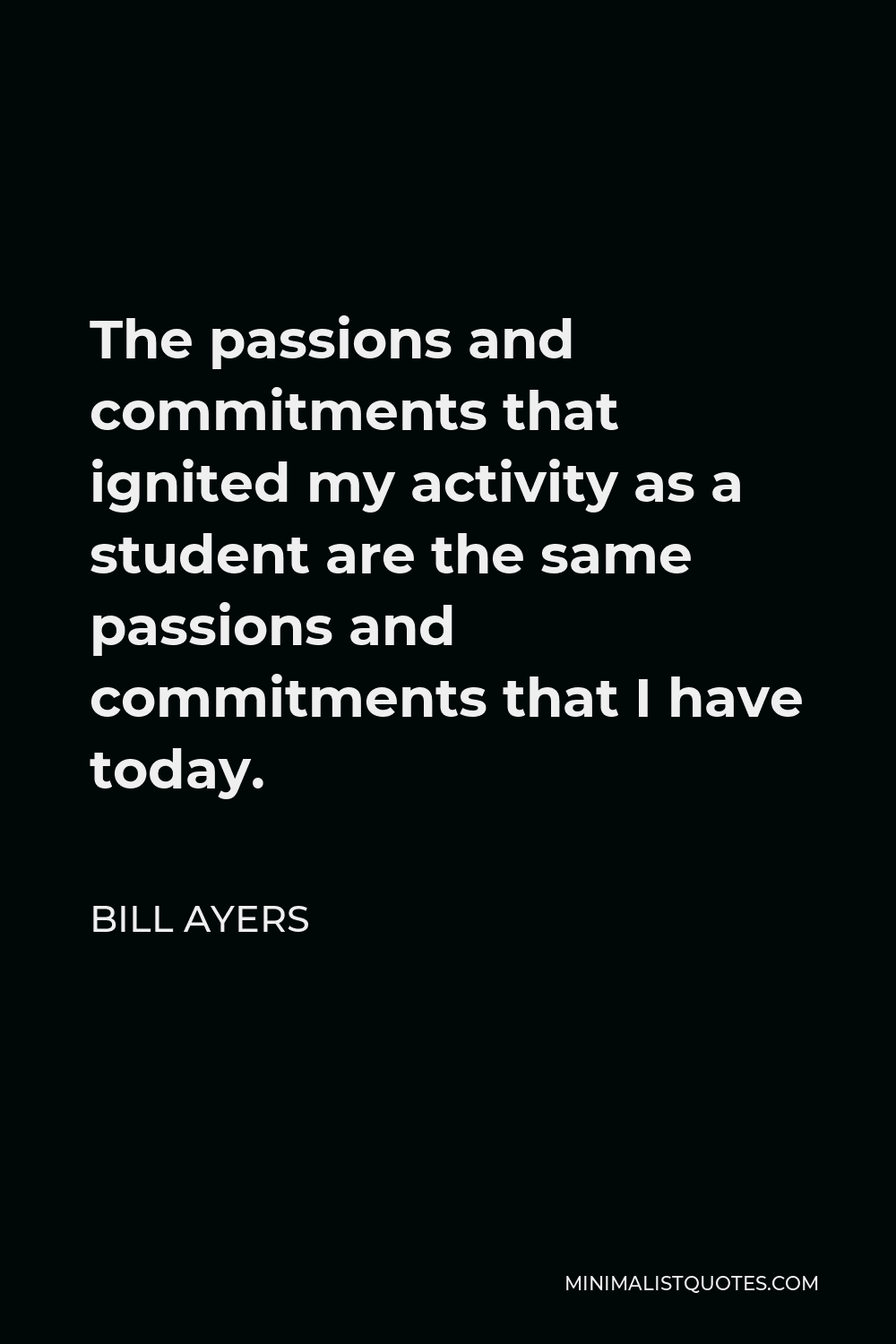
The passions and commitments that ignited my activity as a student are the same passions and commitments that I have today.
BILL AYERS -





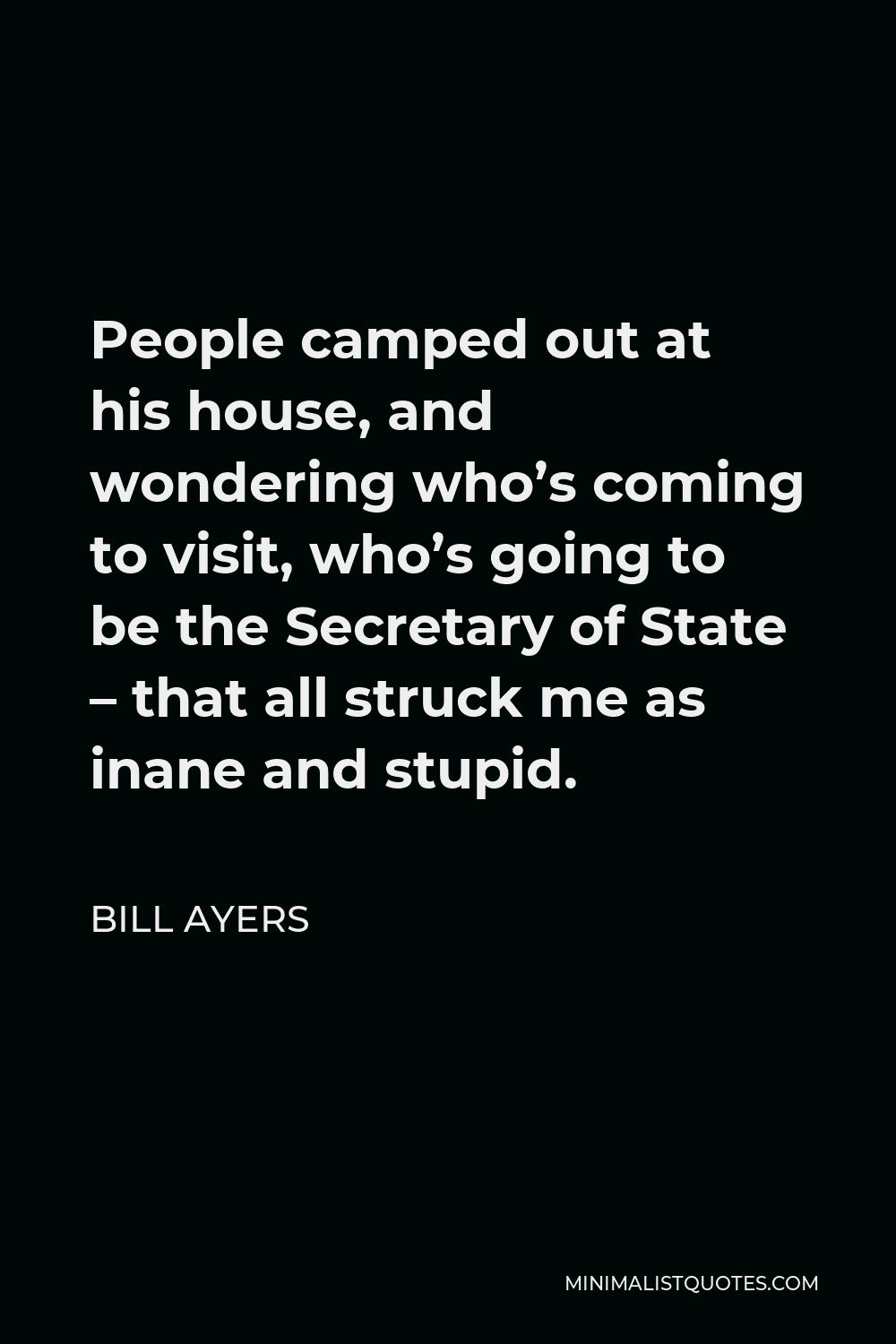
People camped out at his house, and wondering who’s coming to visit, who’s going to be the Secretary of State – that all struck me as inane and stupid.
BILL AYERS -





![Bill Ayers Quote - If you listen to the debate, [Barack Obama] and [John] McCain said the same thing about gay rights.](https://minimalistquotes.com/images/if-you-listen-to-the-debate-barack-obama-and-john-.jpg)
If you listen to the debate, [Barack Obama] and [John] McCain said the same thing about gay rights.
BILL AYERS -





![Bill Ayers Quote - Certainly my parents were Dr. [Benjamin] Spock-driven parents. So they were tolerant.](https://minimalistquotes.com/images/certainly-my-parents-were-dr-benjamin-spock-driven.jpg)
Certainly my parents were Dr. [Benjamin] Spock-driven parents. So they were tolerant.
BILL AYERS -





![Bill Ayers Quote - When [my dad] was at the University of Michigan, my mom was a social-worker. As he rose, he voted for [Adlai] Stevenson initially. Then he voted for [Dwight] Eisenhower. Then he kept voting Republican until he voted for Barack Obama.](https://minimalistquotes.com/images/when-my-dad-was-at-the-university-of-michigan-my-m.jpg)
When [my dad] was at the University of Michigan, my mom was a social-worker. As he rose, he voted for [Adlai] Stevenson initially. Then he voted for [Dwight] Eisenhower. Then he kept voting Republican until he voted for Barack Obama.
BILL AYERS -





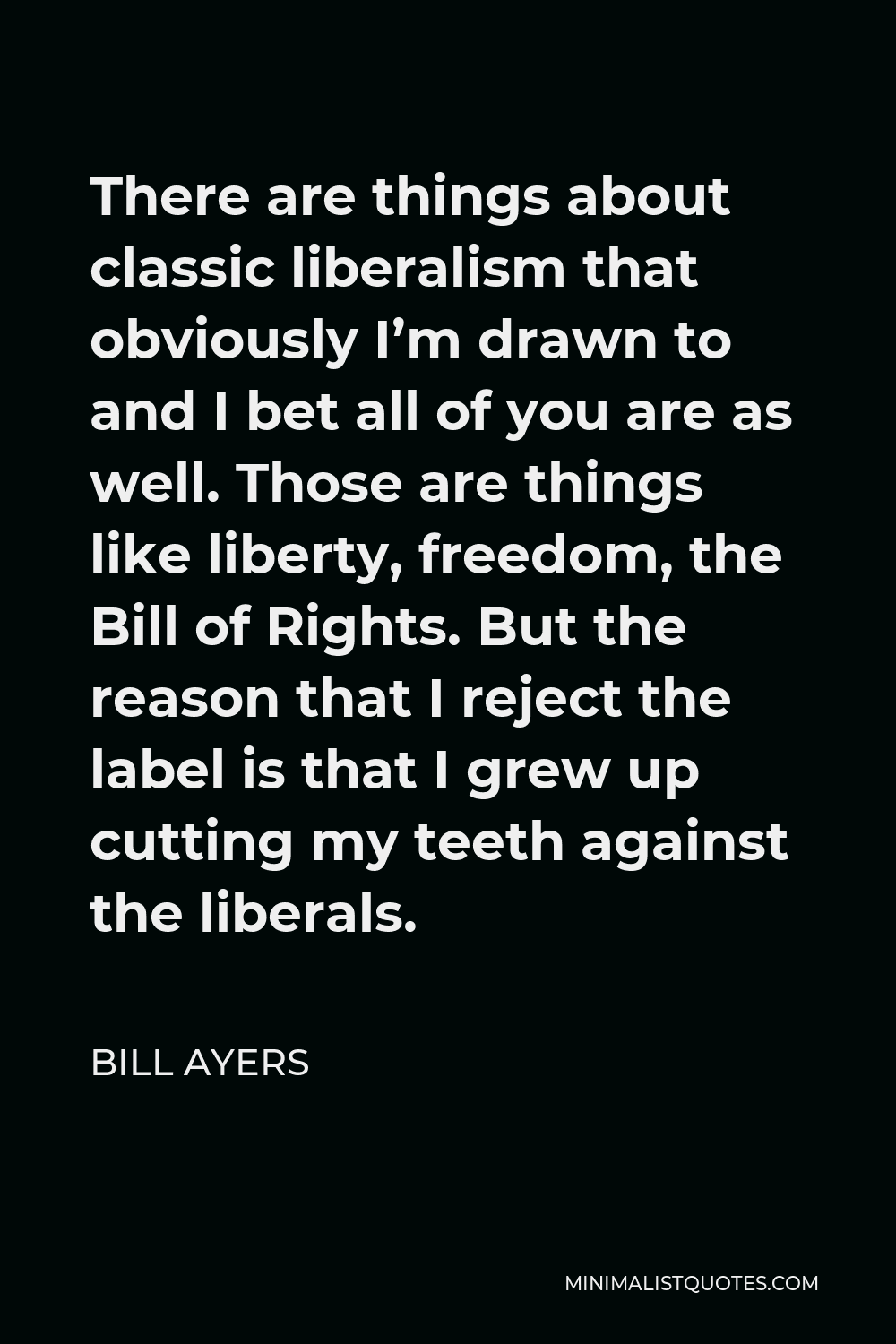
There are things about classic liberalism that obviously I’m drawn to and I bet all of you are as well. Those are things like liberty, freedom, the Bill of Rights. But the reason that I reject the label is that I grew up cutting my teeth against the liberals.
BILL AYERS -





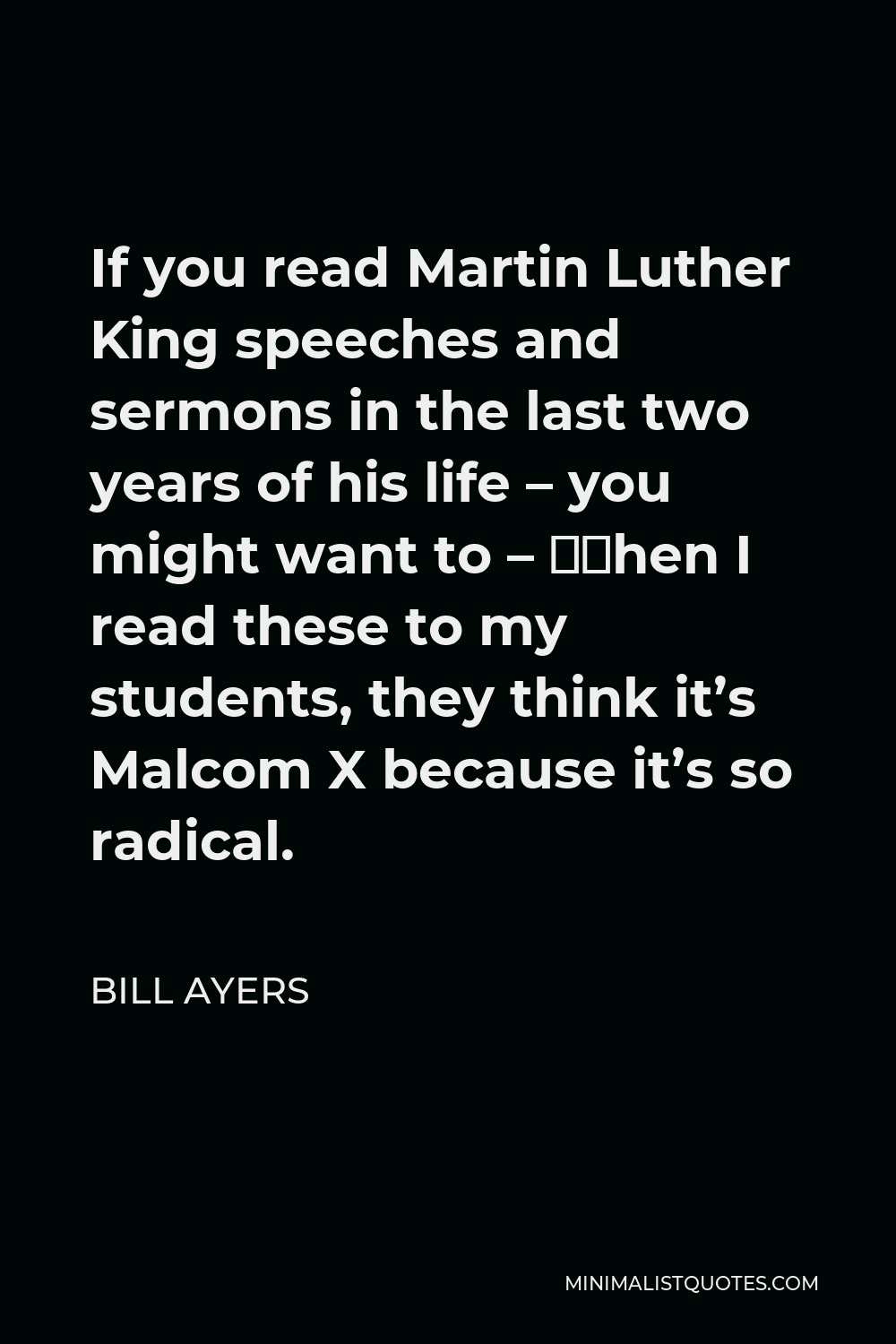
If you read Martin Luther King speeches and sermons in the last two years of his life – you might want to – when I read these to my students, they think it’s Malcom X because it’s so radical.
BILL AYERS -





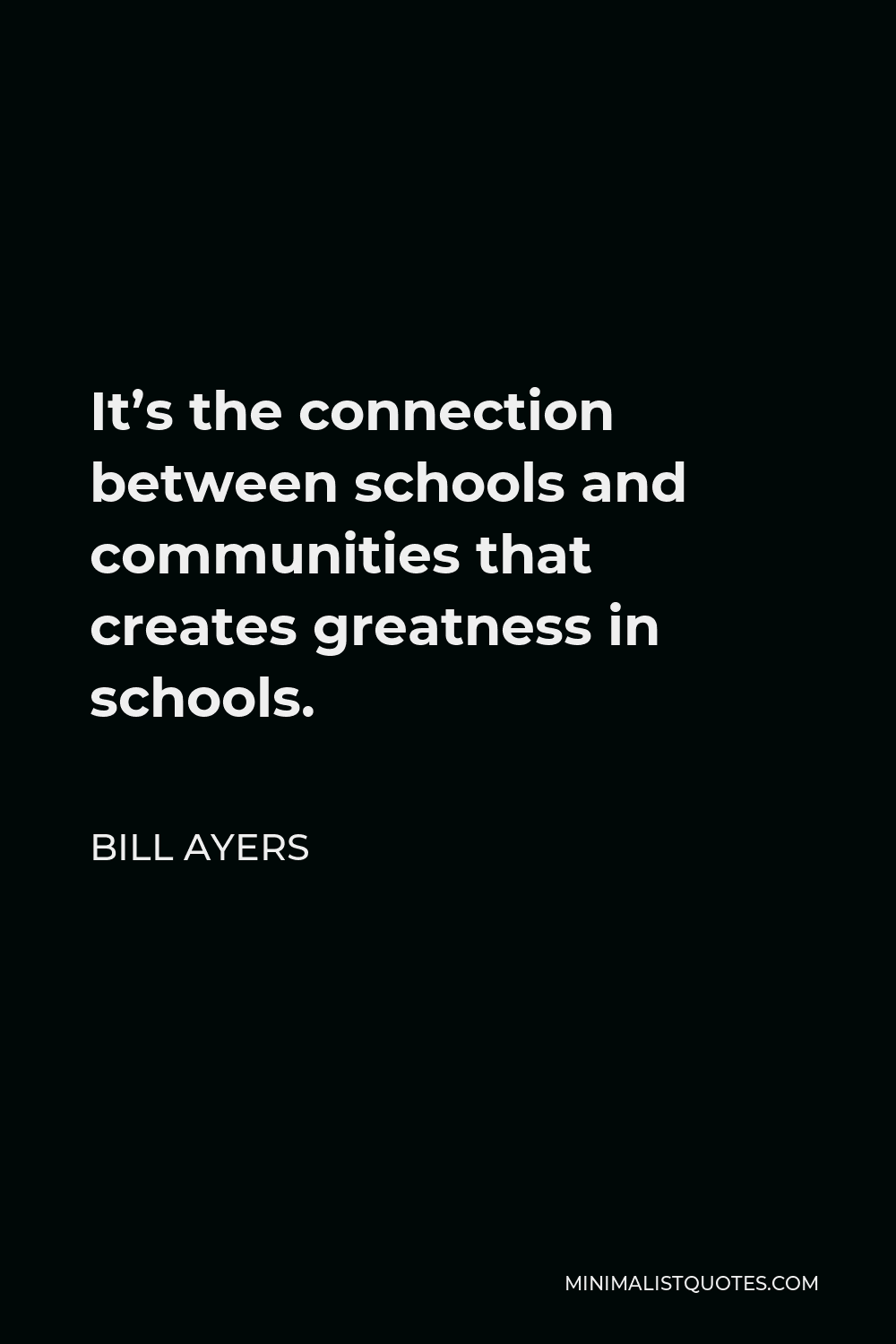
It’s the connection between schools and communities that creates greatness in schools.
BILL AYERS -





![Bill Ayers Quote - [Students for a Democratic Society] was on many campuses and it was a powerful organization. It was founded by Tom Hayden, who passed away very recently.](https://minimalistquotes.com/images/students-for-a-democratic-society-was-on-many-camp.jpg)
[Students for a Democratic Society] was on many campuses and it was a powerful organization. It was founded by Tom Hayden, who passed away very recently.
BILL AYERS -





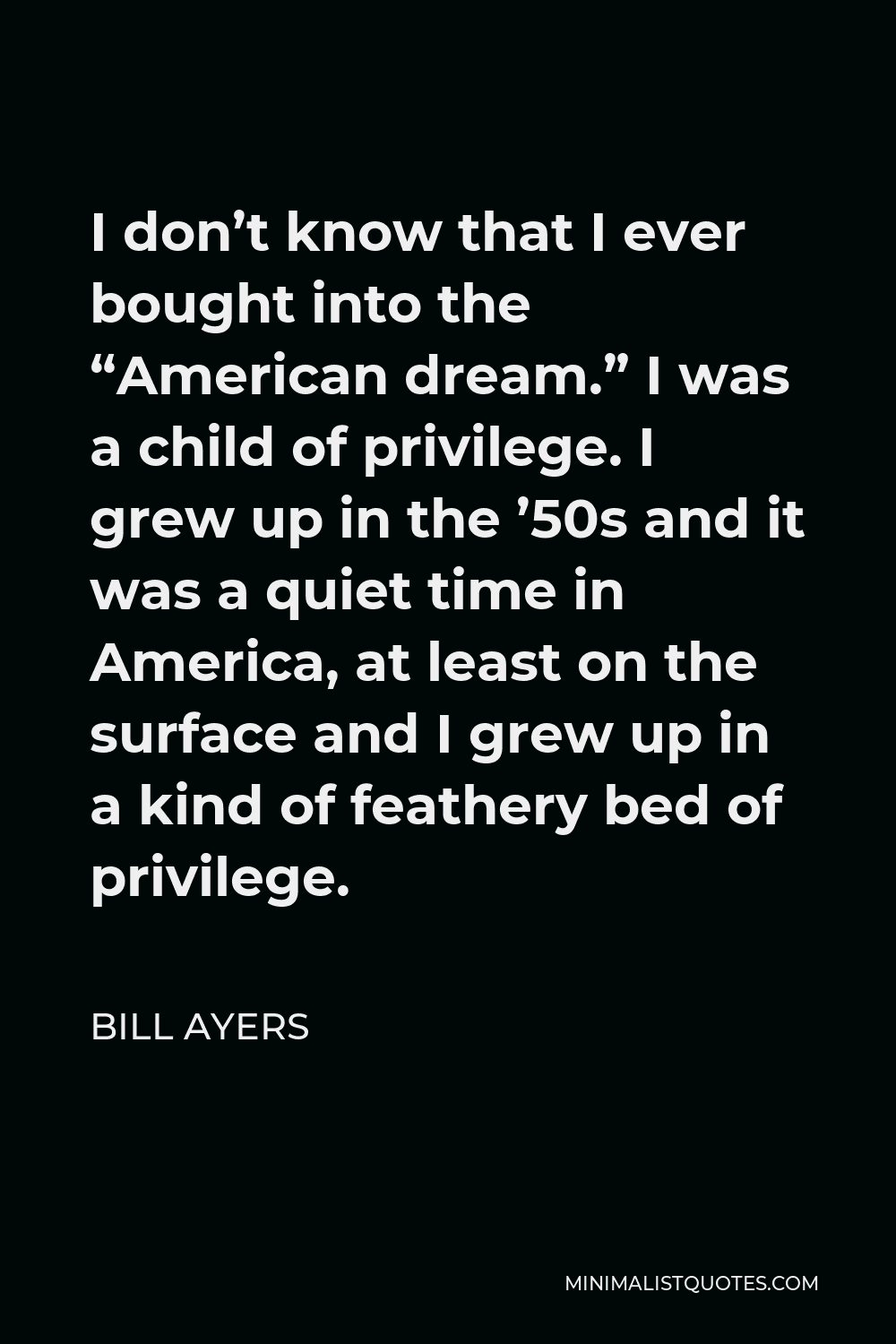
I don’t know that I ever bought into the “American dream.” I was a child of privilege. I grew up in the ’50s and it was a quiet time in America, at least on the surface and I grew up in a kind of feathery bed of privilege.
BILL AYERS -





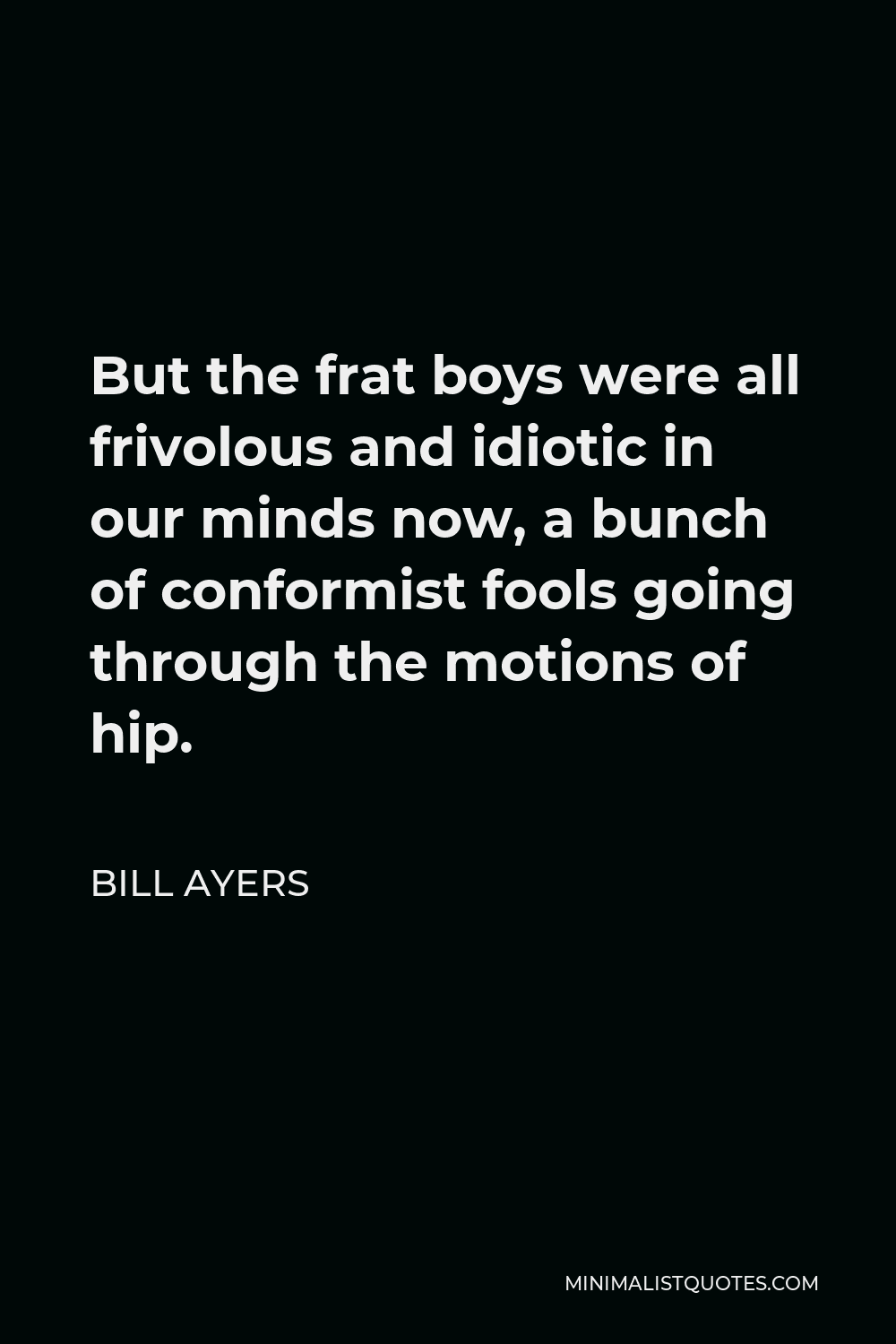
But the frat boys were all frivolous and idiotic in our minds now, a bunch of conformist fools going through the motions of hip.
BILL AYERS -





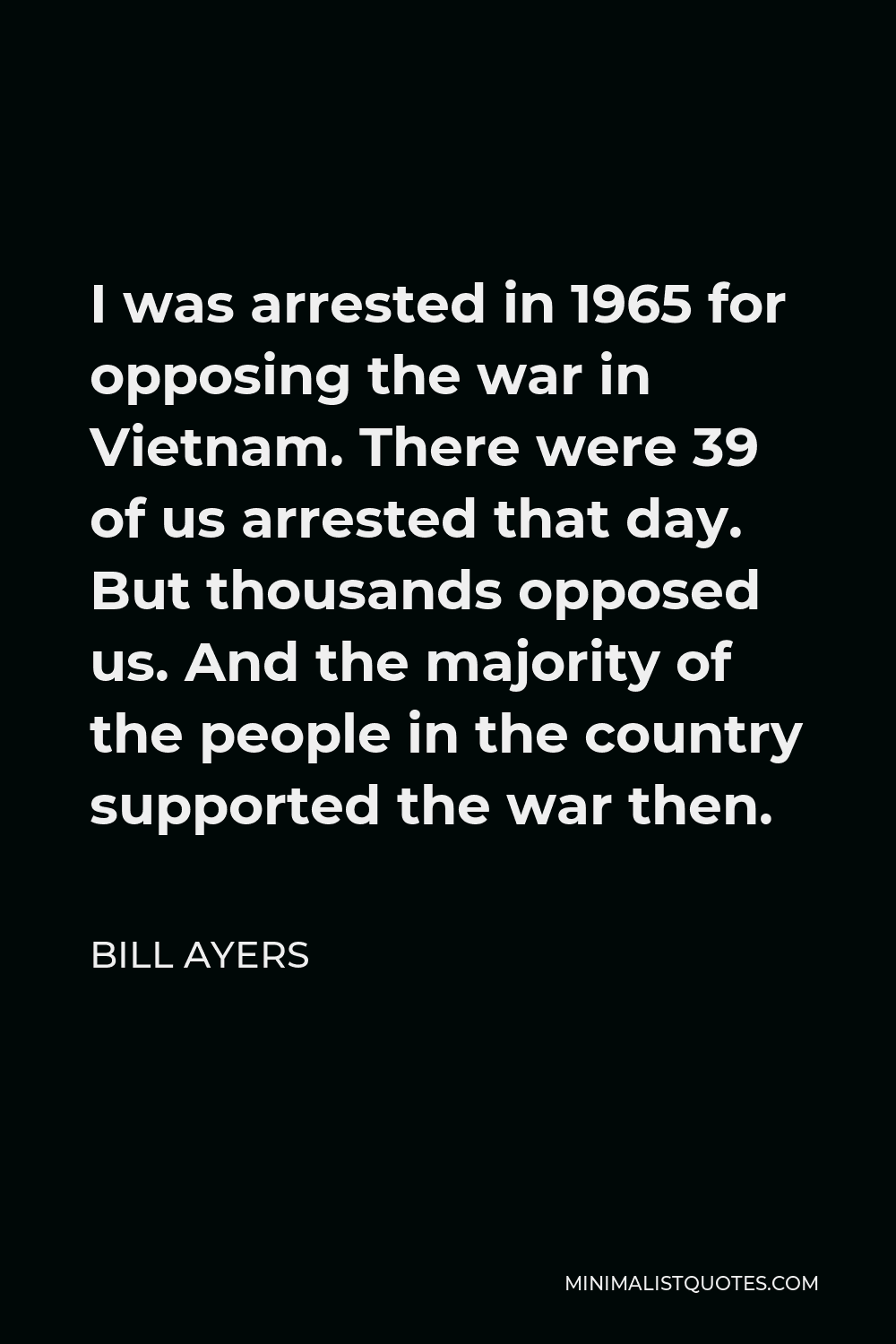
I was arrested in 1965 for opposing the war in Vietnam. There were 39 of us arrested that day. But thousands opposed us. And the majority of the people in the country supported the war then.
BILL AYERS

![Bill Ayers Quote - His [Martin Luther King] last book, Where Do We Go From Here: Chaos or Community, is a direct reference to angles, barbarism or socialism.](https://minimalistquotes.com/images/his-martin-luther-king-last-book-where-do-we-go-fr.jpg)
![Bill Ayers Quote - His [Martin Luther King] last book, Where Do We Go From Here: Chaos or Community, is a direct reference to angles, barbarism or socialism.](https://minimalistquotes.com/images/grey-his-martin-luther-king-last-book-where-d.jpg)
![Bill Ayers Quote - His [Martin Luther King] last book, Where Do We Go From Here: Chaos or Community, is a direct reference to angles, barbarism or socialism.](https://minimalistquotes.com/images/blue-his-martin-luther-king-last-book-where-d.jpg)
![Bill Ayers Quote - His [Martin Luther King] last book, Where Do We Go From Here: Chaos or Community, is a direct reference to angles, barbarism or socialism.](https://minimalistquotes.com/images/red-his-martin-luther-king-last-book-where-d.jpg)
![Bill Ayers Quote - His [Martin Luther King] last book, Where Do We Go From Here: Chaos or Community, is a direct reference to angles, barbarism or socialism.](https://minimalistquotes.com/images/brown-his-martin-luther-king-last-book-where-d.jpg)
![Bill Ayers Quote - His [Martin Luther King] last book, Where Do We Go From Here: Chaos or Community, is a direct reference to angles, barbarism or socialism.](https://minimalistquotes.com/images/white-his-martin-luther-king-last-book-where-d.jpg)

